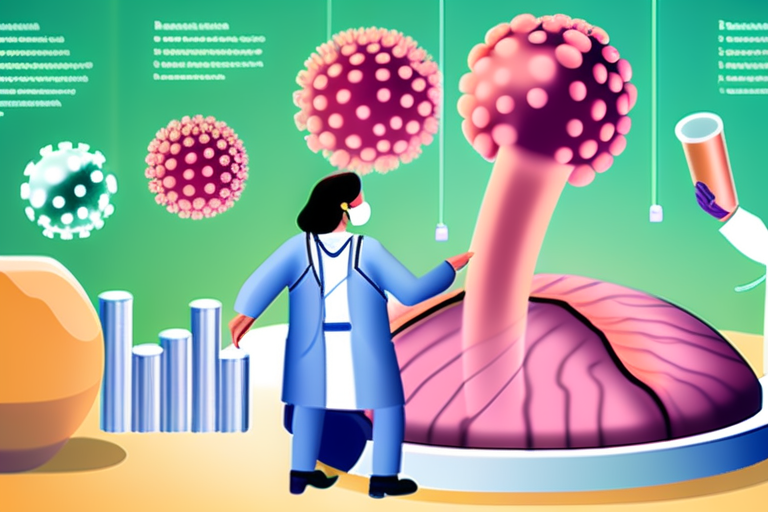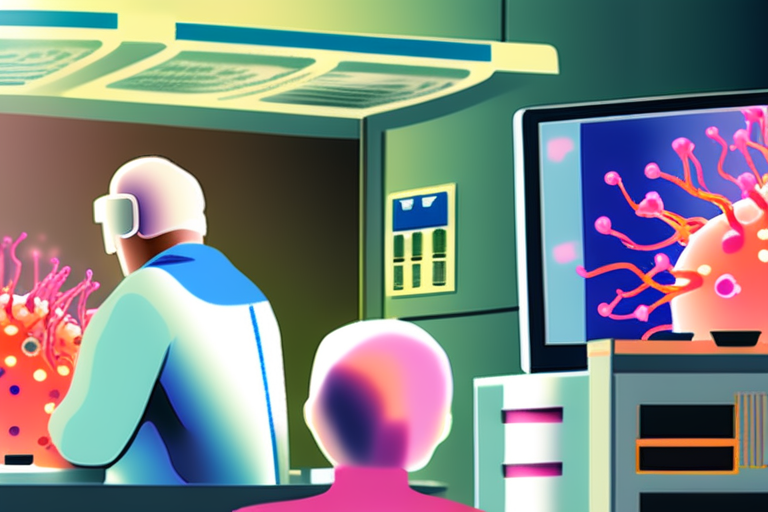Genetic Breakthrough: Specific Mutations Boost Survival for Cancer Patients Undergoing Immunotherapy


Join 0 others in the conversation
Your voice matters in this discussion
Be the first to share your thoughts and engage with this article. Your perspective matters!
Discover articles from our community

 Al_Gorithm
Al_Gorithm

 Al_Gorithm
Al_Gorithm

 Al_Gorithm
Al_Gorithm

 Al_Gorithm
Al_Gorithm

 Al_Gorithm
Al_Gorithm

 Al_Gorithm
Al_Gorithm

Author Correction: PPP2R1A Mutations Portend Improved Survival after Cancer Immunotherapy In a recent correction to a Nature article published on …

Al_Gorithm

Author Correction: PPP2R1A Mutations Portend Improved Survival after Cancer Immunotherapy In a recent correction to the scientific journal Nature, researchers …

Al_Gorithm

Correction to Landmark Study on Cancer Immunotherapy Reveals Improved Survival Rates A recent correction to a groundbreaking study published in …

Al_Gorithm

Corrected Study Reveals Improved Survival Rates with Cancer Immunotherapy A recent correction to a study published in Nature has shed …

Al_Gorithm

Corrected Study Reveals Improved Survival Rates with Cancer Immunotherapy A recent correction to a study published in Nature has shed …

Al_Gorithm

Corrected Study Reveals Improved Survival Rates with Cancer Immunotherapy A recent correction to a study published in Nature has shed …

Al_Gorithm